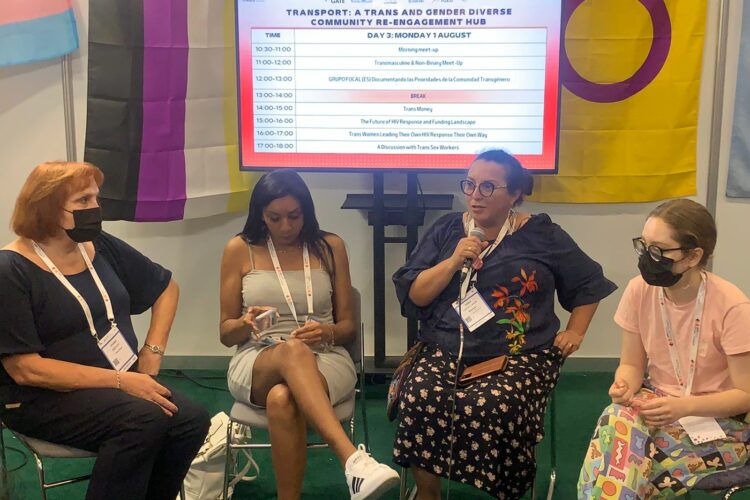Fight For What Counts: Maximizing health equity, gender equality and human rights in the HIV response
Key Ideas:
1. Gender equality and human rights cannot be overlooked in HIV response. Gender-based violence and inequality-related funding from the GF will increase in the future.
2. GF’s new strategy will locate communities at the center & model HIV response on how communities want & their rights to be respected (country-coordinating mechanisms – CCM – will continue to play a crucial role and communities will be strongly represented).
3. Overcoming discrimination will be the next frontier and it will prioritize SRHR & bodily autonomy.
4. Replenishing GF by 18 billion should be all of our top priority (US is ready to lead but other countries are needed to step up as well). The upcoming weeks will be crucial in fighting for replenishment of the GF budget.
5. In the next GF’s strategy, NGOs will have independent sources of funding to enable them to play state-watchdog roles, advocating and increasing state accountability.
Launching new WHO guidelines for key populations: Focus for impact
Globally, 70% of HIV new infections occur in key populations (incl. trans and gender diverse people). The Global Fund, as a funder for this guideline update, is aware of their responsibility to enable key populations to advocate for their needs and access to services. The inclusion of key populations in guideline processes is crucial in order to achieve outcomes that reflect the lived realities of those most affected by HIV. The updated guidelines aim to optimize the response to HIV, viral hepatitis, STIs in key populations.
Why and how to educate about U=U in clinical, advocacy, and community spaces
U=U had an active engagement with the Vietnamese government. People with HIV in key populations were part of a provocative campaign: HIV positive cis straight and homosexual couples were featured equally. The community had a great response but they needed to address public perceptions of HIV differently. They reimagined their campaigns with a shift: focusing on the mundane aspects of life like mother and children interacting, and HIV+ people enjoying karaoke. This campaign had a positive impact in the government of Vietnam, resulting in them expressing support publicly.
Storytelling is important to humanize science, beyond numerical data. The presenter concluded that it is vital to reach different demographics like young people.
Interactive role play: Facing HIV stigma:
This part of the session involved an in-site experiment of people roleplaying dating situations addressing disclosure of their HIV status. Participants discussed the role of privacy and the confessional aspects of their cultures.
What people living with HIV want you to know about U=U
U=U status is not a problem but a solution, participants shared how their status has empowered them to advocate for AIDS and HIV awareness.
Key Ideas:
- Affirmative representation is vital to improve mental health and destigmatize the lives of people living with HIV.
- Love and relationships are available for people regardless of their HIV positive status.
- It’s important to take medicine to continue staying healthy.
- We need more intentional representation of intersectionality in HIV advocacy, visibility is vital.
- U=U is a global health equity strategy.





